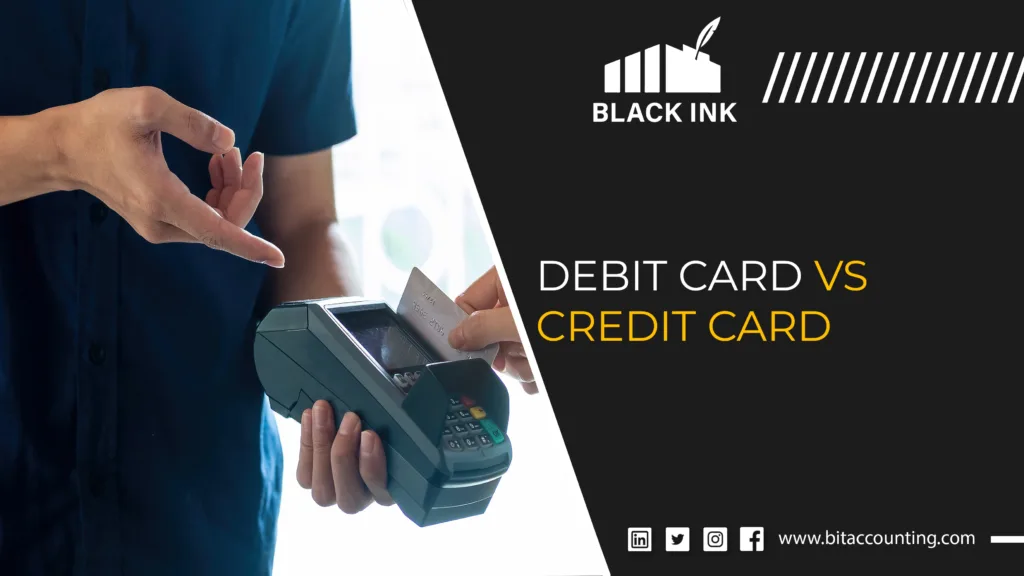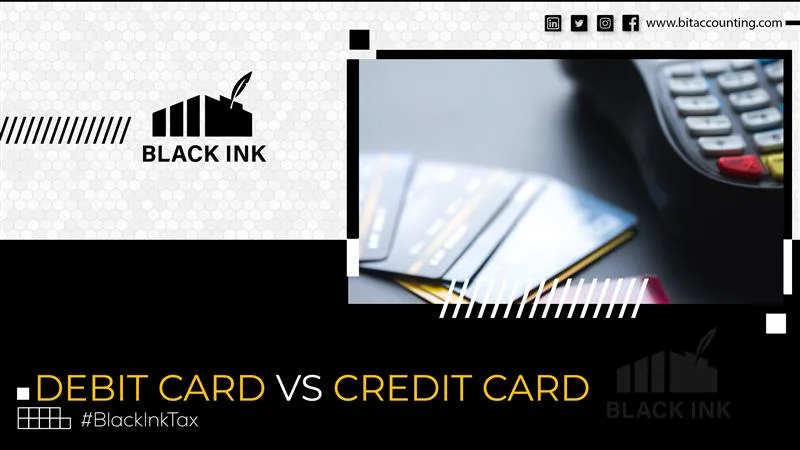
Table of Contents
Debit Card vs Credit Card: Is There A Difference?
When it comes to paying for things, you’ve probably used both a debit card vs credit card—but do you really know how they work? While they might look the same in your wallet, they’re actually very different tools for managing your money.
Understanding the difference between debit and credit cards is key to making smart choices about how you spend and save. Whether you’re new to money management or just want to get better with your finances, this guide will walk you through everything you need to know about debit card vs credit card decisions.
We’ll explore how each card works, compare their pros and cons, bust some common myths, and help you figure out which one is right for you. Let’s dive in.
What Is a Debit Card?
A debit card is a payment card that lets you use your own money directly from your bank account. When you swipe or tap a debit card, the money is taken out of your checking or savings account right away.
How It Works:
- Linked to your bank account (usually checking)
- Instant money deduction when used for purchases
- PIN required for ATM withdrawals and some payments
Common Uses:
- Everyday shopping (groceries, gas, clothes)
- ATM withdrawals
- Online purchases (if accepted)
Types of Debit Cards
- Standard debit cards: Linked to checking accounts
- Prepaid debit cards: Preloaded with money, not tied to a bank
- Business debit cards: Used by companies to manage spending
Debit cards are great for simple budgeting because you can only spend what you already have.
What Is a Credit Card?
A credit card lets you borrow money from a credit card company (like Visa, MasterCard, or American Express) up to a certain limit. You’re expected to pay back what you spend—either in full or over time.
How It Works:
- You use the card to borrow money for purchases
- Your bank sends a monthly bill (called a statement)
- You must pay at least a minimum amount by the due date
- If you don’t pay the full balance, interest builds up
Common Uses:
- Shopping online or in-store
- Emergency expenses
- Booking hotels or flights
- Building your credit history
Types of Credit Cards
- Secured credit cards (require a deposit)
- Rewards credit cards (earn points, miles, cashback)
- Travel cards (offer perks for frequent travelers)
- Business cards (for company use)
Credit cards are powerful, but they require discipline. If used right, they can boost your credit score and offer valuable rewards.
Table of Comparison: Debit Card vs Credit Card
Feature | Debit Card | Credit Card |
|---|---|---|
Source of Funds | Your bank account | Borrowed money (credit line) |
Spending Limit | Account balance | Credit limit set by issuer |
Fraud Protection | Limited | Strong (zero-liability policies) |
Credit Score Impact | None | Can build or harm credit |
Interest Charges | None (unless overdraft is used) | Yes, if balance isn’t paid in full |
Rewards & Perks | Rare | Common (cashback, travel points) |
Fees | ATM, overdraft (if enabled) | Interest, annual fees, late fees |

Key Differences Between Debit Card vs Credit Card
Source of Funds
- Debit Card: Spends your own money
- Credit Card: Uses borrowed money from a lender
Spending Limits
- Debit: Limited to what’s in your account
- Credit: Set by your credit limit (based on credit score and history)
Impact on Credit Score
- Debit: No effect on your credit
- Credit: Can boost or hurt your credit score depending on how you use it
Fraud Protection & Liability
- Debit: You may lose money if your card is misused
- Credit: Usually protected by strong zero-liability rules
Fees & Interest Charges
- Debit: Low fees (unless you overdraft)
- Credit: Possible interest, late fees, or annual charges
Rewards & Perks
- Debit: Rare rewards, though some banks offer cashback
- Credit: Often comes with points, miles, or cashback deals
Pros and Cons of Debit Cards
Here are some pros and cons of debit cards:
Pros of Debit Cards
- You can’t overspend—only use what’s in your account
- No interest charges
- Easy ATM access
- Great for keeping track of your budget
Cons of Debit Cards
- Limited protection from fraud
- Doesn’t help build your credit score
- Fewer perks or rewards
- Overdraft fees if enabled and you spend too much
Pros and Cons of Credit Cards
The following are the advantages and disadvantages of credit cards:
Pros of Credit Cards
- Helps build your credit history
- Strong fraud protection
- Earn rewards like points, miles, or cashback
- Useful during emergencies when you don’t have cash
Cons of Credit Cards
- Easy to fall into debt if not careful
- Interest charges can pile up
- Some cards charge annual fees
- Risk of overspending if you don’t track usage
When Should You Use a Debit Card?
Use your debit card when:
- You’re shopping for daily items like groceries
- You want to avoid debt
- You need cash from an ATM
- A store charges extra fees for credit cards
Debit cards help you stay grounded in reality—spending only what you have.
When Should You Use a Credit Card?
Use your credit card when:
- Buying big-ticket items (electronics, travel)
- Booking hotels, flights, or rental cars
- You want to earn rewards like cashback
- You’re looking to build or improve your credit score
- You need funds during an emergency
Just remember to pay off the balance each month to avoid interest.
Can You Use Both Cards Strategically?
Yes—and this is what smart money management often looks like.
Here’s a simple strategy:
- Use debit for everyday spending (groceries, gas)
- Use credit for big purchases and to earn rewards
- Always pay your credit card in full each month
- Keep track of both accounts to spot fraud early
Using both cards wisely gives you the best of both worlds—budget control and credit-building benefits.
Common Myths About Debit & Credit Cards
Let’s clear up a few misunderstandings:
- “Debit cards are always safer.”
Not true—credit cards usually have better fraud protection.
- “Credit cards lead to debt.”
Only if misused. If you pay your balance on time, you’ll avoid interest and build credit.
- “You don’t need a credit card if you have a debit card.”
- You won’t build a credit history without using credit.
- “Carrying a balance helps your credit.”
- Nope. You don’t need to carry debt—just use the card and pay it off.
Which One Is Right for You?
Choosing between a debit card vs credit card depends on your personal goals.
- Spending habits – Do you like tracking every penny or enjoy the freedom to delay payment?
- Financial goals – Want to build credit or avoid debt?
- Lifestyle needs – Travel often? Want rewards?
- Comfort with risk – Can you avoid overspending with credit?
Some people go all-in on one card. But most find that a hybrid approach works best—debit for control, credit for rewards and growth.
Conclusion
So, is there a difference between debit card vs credit card? Absolutely.
One helps you spend what you have, while the other lets you borrow and build credit. Each has its perks and pitfalls. If you want to stay out of debt, debit might be your best friend. If you’re aiming to grow your financial profile and earn rewards, credit can be a great tool—if you use it wisely.
The good news? You don’t have to pick just one. With smart planning, you can use both to your advantage.
Need help managing your finances or business spending? BIT Accounting can help you understand your options, set up budgets, and make smarter money moves.
FAQs
1: Which card is better for everyday purchases?
A debit card is better if you want to avoid debt and stick to a budget. But if you pay off your credit card monthly, you can earn rewards.
2: Will using a debit card help build my credit?
No. Debit cards don’t impact your credit score because they don’t involve borrowing money.
3: Can I have both a debit and credit card?
Yes, and many people do. Using both smartly can give you the benefits of each.
4: What happens if I lose my card?
Credit cards usually offer better fraud protection than debit cards, making them safer if lost or stolen.
5: Are prepaid debit cards the same as regular debit cards?
Not exactly. Prepaid cards aren’t tied to a bank account and may come with more fees.
GET FREE QUOTE FOR ALL OF OUR SERVICES
Black Ink will send you a free analysis of your current state and what would be the cost of managing either a separate accounting and bookkeeping services or a complete solution across New York, USA. Do get in touch and we will be happy to consult you with our bookkeeping services in NY, New York, USA.
